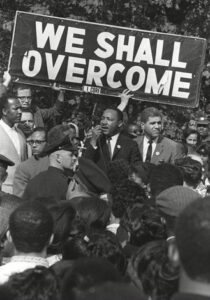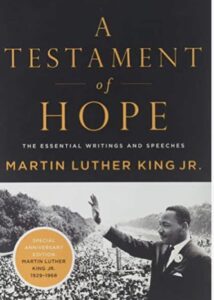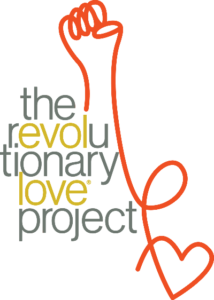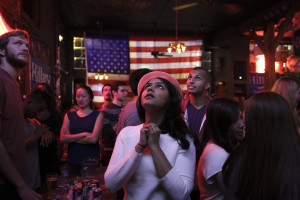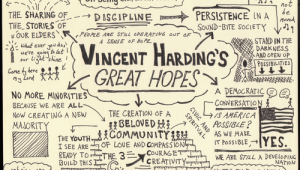Beloved Community
MLK DAY 2022
January 17, 2022Life takes pride in not appearing uncomplicated. If it relied on simplicity, it probably would not succeed in moving us to do all those things that we are not easily moved to do.
-Rilke
Seth Godin:
“The Way Things Are…”
That’s how culture perpetuates injustice and indignity. Because that’s just the way things are around here.
But the status quo isn’t permanent. The world doesn’t stay the way it was. It changes.
And it’s been changing faster than ever.
It doesn’t change because the status quo sub-committee had a meeting and decided to change it.
It changes when someone decides that the way things are around here needs to change, and simply and bravely begins to do something differently.
And then someone else follows along.
Dan Rather:
I fear that the elevation of Dr. King to the pantheon of great Americans who have national birthday celebrations has come at a subtle cost. These days almost no public official would dare speak ill of Dr. King. However I worry that this universal acclaim has deadened the radicalism of Dr. King’s message. And by radicalism, I mean that what he espoused was far outside what was then the mainstream. It still is.
We must remember that he was a deeply contentious person at the time of his death. Dr. King would not, could not, suppress the moral clarity with which he saw the world. His messages about racial prejudice and social justice were not welcome in most corridors of power. He was a danger to the status quo and many who benefited from it. He not only preached powerfully about the necessity for racial healing and integration. He also issued stirring rhetoric from his pulpit on the need for economic fairness across racial lines. And he was a fierce critic of the Vietnam War.
So today, please don’t revere Dr. King the American saint. Please engage with Dr. King as the unique vessel for a message America was long overdue to hear.
[Steady/Substack]
Our Turn Now
Marianne Williamson:
Those words should ring like clarion calls to all of us today. Our task is not merely to celebrate the ideals of Martin Luther King Jr., but to commit ourselves to their realization. And that means much more than just tweeting a quote, or making an instagram post. It means developing what Dr. King described as “tough minds and tender hearts.” It means committing to routing out not only systems of injustice in the world, but also the hatred in our own hearts. Dr. King said that a basic tenet of non-violent philosophy is that “self-purification must precede political action.” In his words, we need both “a quantitative change in our circumstances and a qualitative shift in our souls.”
Dr. King was the Reverend Dr. Martin Luther King Jr., remember, a Baptist preacher whose political vision was rooted in his understanding of the gospel of Christ. “It is time,” he said, “to inject a new dimension of love into the veins of human civilization.” That love – that new love – was a social love, a love that would heal not only personal but also political and social relationships as well. He found inspiration for that possibility in the work of Mahatma Gandhi, traveling to India to study the principles of non-violence and bringing them back for application to the struggle for Civil Rights in the United States in the 1960’s.
So many of the struggles to which Dr. King dedicated his life, and for which he ultimately died, are struggles that are with us still. Surely he could be talking about America today with comments such as this: “If they give it to poor people, they call it a handout; if they give it to rich people, they call it a subsidy.” Or, “If it happens to rich people, they call it a Depression; if it happens to poor people, they call it a social problem.” Or how about this? In describing America in 1967, Dr. King described the “three evils” of racism, consumerism/poverty, and militarism/war. As those not the main challenges that are with us now? He called for a “radical revolution of values” then, just as we need to call for one now.
The struggle is in our hands. The dream is in our hands. The hope is in our hands.
MLK Day 2022. It’s our turn now.
‘…the ultimate goal (was) the establishment of the beloved community.” Such a notion was not a religious platitude; it was a political strategy.
For a full look at Dr. King’s writings and speeches, I highly recommend A Testament of Hope.’ -Marianne
The longer I live, the more urgent it seems to me to endure and transcribe the whole dictation of existence up to its end, for it might just be the case that only the very last sentence contains that small and possibly inconspicuous word through which everything we had struggled to learn and everything we had failed to understand will be transformed suddenly into magnificent sense.
-Rilke
What if…
September 13, 2021‘What if this is not the darkness of the tomb, but the darkness of the womb?’ -Valerie Kaur
The Revolutionary Love Project, founded by civil rights leader and prophetic voice Valarie Kaur, inspires and equips people to build beloved community where they are. We teach core practices of revolutionary love, backed by research and infused with ancestral wisdom. Our team produces educational tools, training courses, artwork, films, music, and mass mobilizations that center the voices of BIPOC (Black, Indigenous, People of Color) communities. In an era of great transition, we believe that we can birth a world where we see no stranger. Each of us has a role. When we lead with love, we labor with joy.
Is America Possible?
November 12, 2016Vincent Harding – – Is America Possible?
In an unsettled political moment, at the end of a divisive campaign, the late, great civil rights elder Vincent Harding is a voice of calm, wisdom, and perspective. He was wise about how the civil rights vision might speak to 21st-century realities. Just as importantly, he pursued this by way of patient yet passionate cross-cultural, cross-generational relationship. He reminded us that the Civil Rights Movement was spiritually as well as politically vigorous; it aspired to a “beloved community,” not merely a tolerant integrated society. He posed and lived a question that is freshly in our midst: Is America possible?
onbeing.org/
Vincent Harding was chairperson of the Veterans of Hope Project at Iliff School of Theology in Denver, where he was professor of Religion and Transformation. His published works include Hope and History: Why We Must Share the Story of the Movement, There Is a River: The Black Struggle for Freedom in America, Martin Luther King: The Inconvenient Hero, and the essay “Is America Possible?”
Transcript:
http://www.onbeing.org/program/vincent-harding-is-america-possible/transcript/9037#main_content
